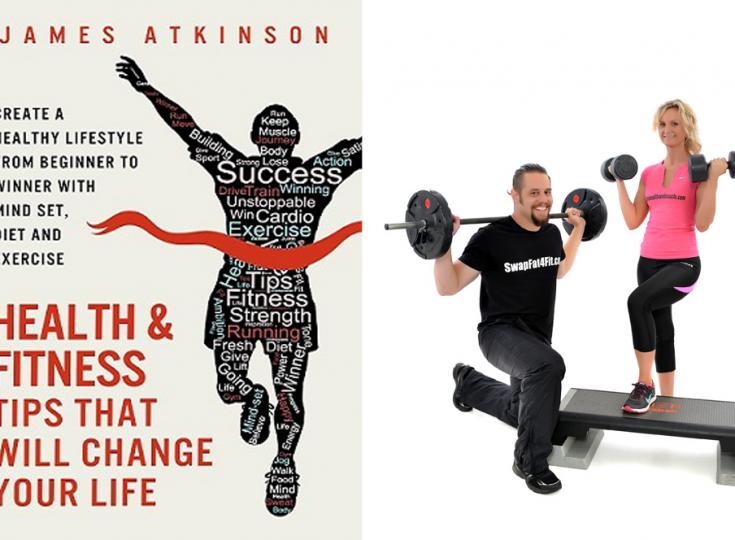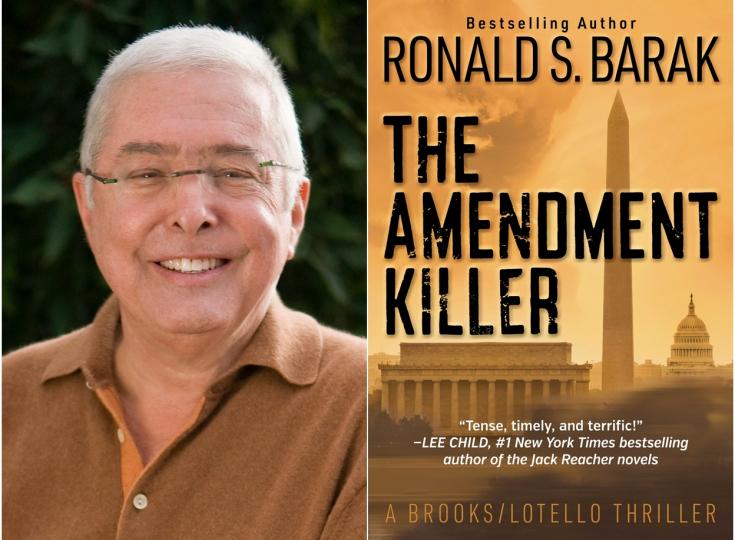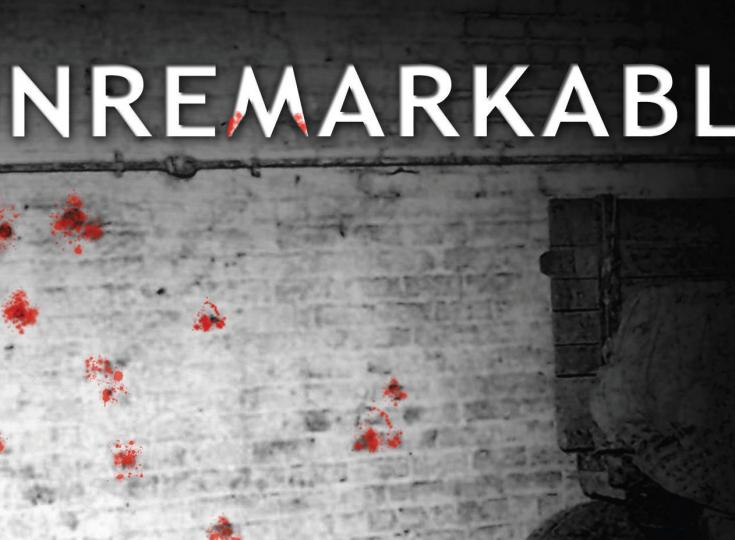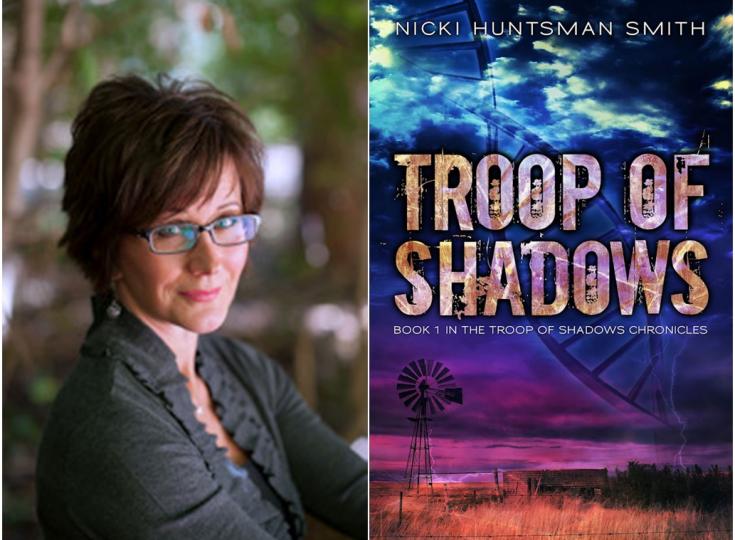Adron J. Smitley - Intriguing Fantasy in an Immersive world
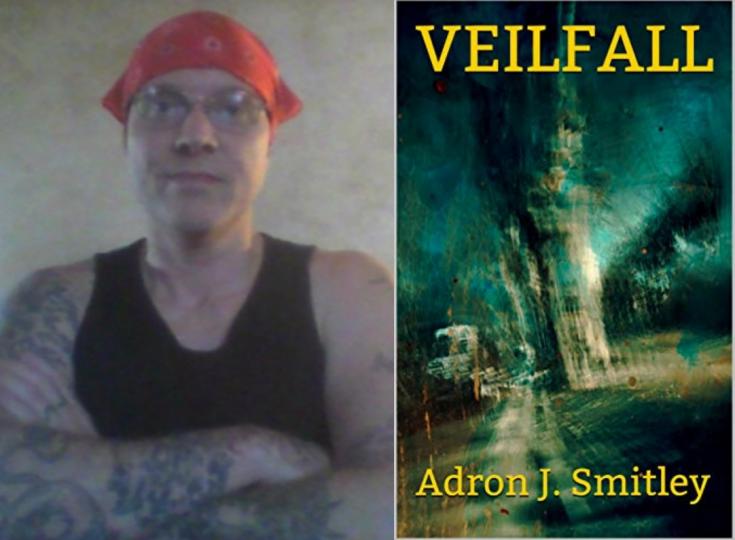
#1 best-selling fantasy author Adron J. Smitley loves and writes fantasy, as well runs an advice blog for writers on everything from plot, character, and story structure. Adron also authored the critically acclaimed 'Punching Babies: a how-to guide' a teaching manual for writers on how to best plot their stories through every essential stage of dramatic conflict. As our Author of the Day, Adron tells us all about Veilfall.
Please give us a short introduction to what Veilfall is about.
Love, essentially. Or the budding beginnings of true love. Strip everything else away—all the magic, the swordfights, the warring armies, blah blah blah—and you’re left with love. The triumph of life is finding your one true love, just as the tragedy of life is losing that same love or worse never discovering the profound joy of it in the first place. That’s why I opened Veilfall’s book blurb with, “Time is life’s most precious commodity, and love life’s most precious gift.” I believe that is the universal truth to all human life.
But don’t get me wrong, Veilfall isn’t just about love, that’s only the underlying part of it. Robert E. Howard (creator of Conan; the barbarian, not the talk show host) is my favorite writer by far, and as such Veilfall contains plenty of excitement and adventure and bloody violence to offer asides its few sappy parts.
Was there something in particular that made you want to tackle this?
Everyone wants to love and to be loved. It’s what we all have in common and what unites us as people regardless of any opposing beliefs. It really is as simple as that.
Tell us more about Banzu Greenlief. What makes him tick?
Banzu is young and impulsive, stubborn, and quick to anger. As well he’s lived a secluded life and because of it exists in his own shroud of ignorance. What better canvas to paint than a teenager who thinks they know everything only to discover they know nothing?
But what most makes him tick is that special part of him that seeks a purpose in his lonely life and his ability to refuse surrender if he believes in something he values as important. After he meets Melora, she rips his shroud of ignorance away while instilling him with that vital component of purpose he’s lacked all his life.
Fact is, though a lot of us men refuse to admit it because we’re stubborn creatures of ego, what really completes us is the love of a good woman who doesn’t just provide compatibility and companionship to those hidden longing parts of us but also tests us at every turn while proving that compromise is the foundation to every fulfilling relationship.
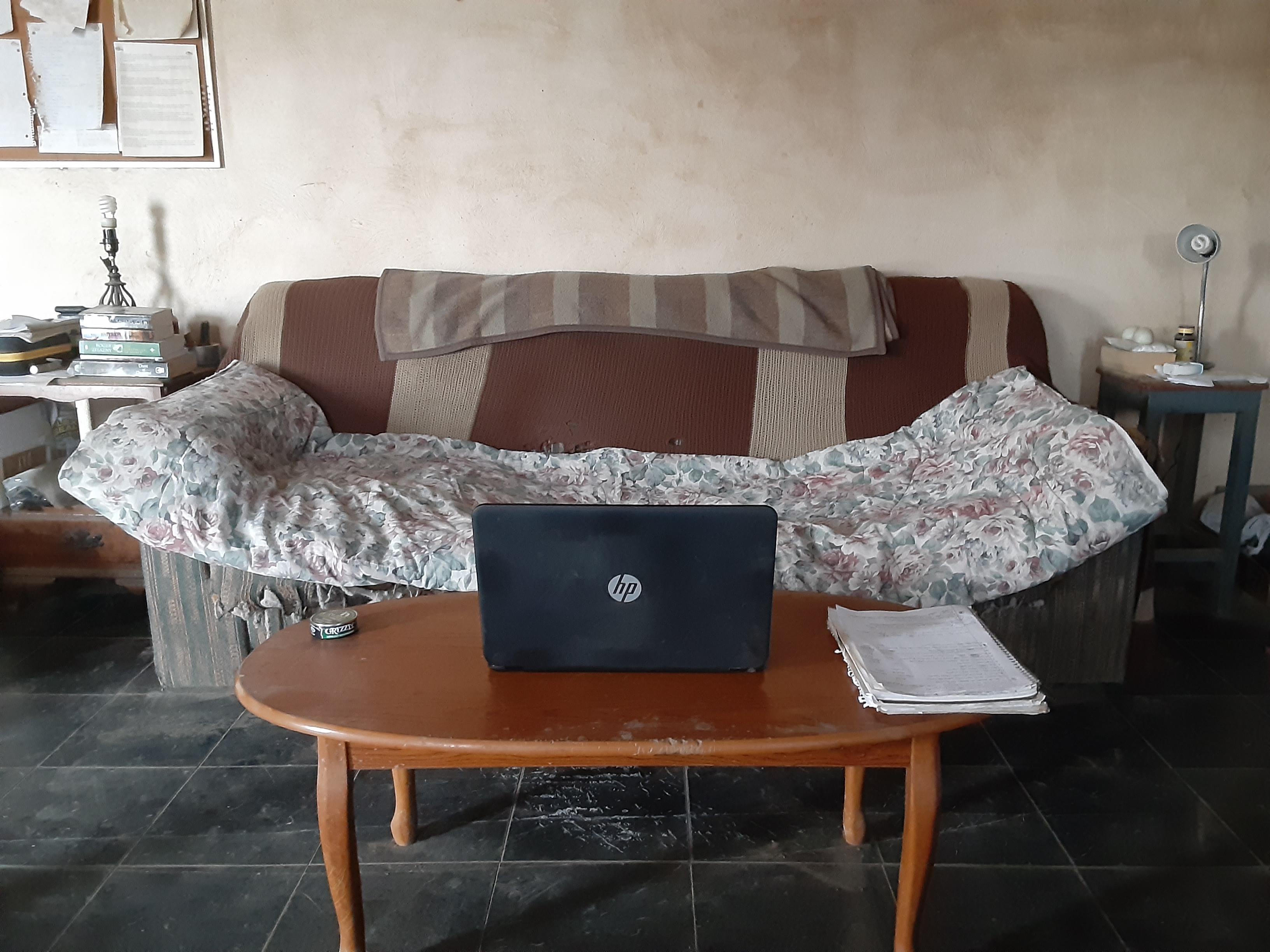
What inspired the creation of the Thousand Year War?
I’ve had the world of Veilfall in my head since I was a child, but I kept it inside my overactive imagination and only used writing as a hobby with no intention of ever sharing it. Then one day I decided, “Why not?” And so wrote it all down to share.
The Thousand Years War is basically just backstory, and originally I sought to tell that tale through the necromaster Dethkore as the tragic protagonist. But the more I wrote and the developing story took on a life of its own, the more I discovered Banzu’s and Melora’s part in it all the more interesting read. So I scrapped the couple hundred-thousand words of the Thousand Years War as backstory and started fresh with Banzu as the protagonist. Then I heaped upon him lots of problems because the #1 rule of good story is adversity builds character.
Besides writing, what other secret skills do you have?
I spent my teenage years as a musician (guitarist and vocalist), and even had a couple songs played on the local radio (think Nirvana mixed with Metallica). Music proved my natural talent and came easy to me, but I couldn’t find any others with the same dedication as myself and so that part of me snuffed to waste after years of disappointment suffering in bands with people who cared more for telling everyone they were in a band than the actual music itself.
But writing and music are just two sides of the same musing coin, and that passion redirected return into writing. I wanted to be a comic book writer until I discovered music. And I’ve found that each scene I write possesses its own particular song, which helps me in writing them.
As to other talents . . . well, I guess another is I can solve a Rubik’s Cube in about thirty seconds. Though as with all puzzles, once you know how to do it you realize it for just a simple party trick.
Why did you decide to write an ancient demonic cult into the story?
Every great story requires a great antagonist (Superman is only a superhero when he fights someone who has kryptonite), and starting with a group of like-minded evils allows several antagonists to contest against as well instant conflict between them. Overburdening your protagonist with daunting odds is a step in the right direction to developing an interesting character we don’t just sympathize but more importantly empathize with because everyone cheers for the underdog.
Do you have a set of rules for your world? Is there a process you go through that helps define these?
There must be consequences regardless of the situation.
I’ve always believed whatever unique powers or special abilities your protagonist possesses, they must also come with an equal if not superior amount of consequences for using them.
Especially so magic.
I’ve been a rabid reader of fantasy most of my life, and I’ve always hated stories where characters go around performing magic and such and the only consequence is it tires them. So firm rule #1 in my world is that if anyone can perform magic they also suffer an equal consequence for using it. Because if not then why don’t they just mosey around using it all the time?
Banzu is cursed with bloodlust. Melora’s void-aura makes her immune to magic, which in a world full of magic presents it own problems. Hannibal Khan’s magical armor slowly turns him psychotic. And so on.
Consequences inject immediate personal conflict, and without conflict there is no story.
Readers say your descriptions are very detailed and almost poetic - why did you take this approach?
It warms my heart that many of my readers have complimented me so, but the fact is this is just how I happen to write. There’s no purpose to it involved.
Not bad for a high school dropout.
Though I did discover a writing gem years ago that helps. If you do nothing else, remove ‘was’ from your writing and learn to restructure your sentences and I guarantee your writing will improve 100 percent.
Interesting cover. How did it come about?
By happenstance.
While perusing the internet for some pictures to manipulate in Paint, I discovered Unsplash.com (I have no association to them other than having used them). Sites like Unsplash allow artists to upload their material and others to use that material royalty-free. Veilfall’s cover is a design by the talented artist Javier Rodríguez Corpa. Soon as I saw it I knew I wanted to use it because it felt as if he’d painted it specifically for my novel, so I did. And of course, I credited Mr. Corpa for it in the cover. Always credit the artist. They are the unsung heroes of authors and book sales since most readers are first drawn to your novel by its enticing cover.
I doubt I’ll ever meet Mr. Corpa, but I’ve stashed a couple hundred bucks away to grease his palm with just in case I ever do.
This is book one of the Soothsayer series. Can it be read as a standalone? How do the other books in the series tie in with this one?
Yes, Veilfall can be read and enjoyed as a standalone. I write all my novels with this intention. Though events carry over into the next novel when writing a series, the main plot presented through your protagonist should always be resolved so your readers feel they’ve gotten their money’s worth. As an avid reader myself, I hate it when I enjoy a book then reach its end and discover the writer has clipped the story short with an unresolved cliffhanger to continue it in the next novel.
A major pet peeve of mine is an author presenting their series then spending years between novels while calling readers demanding or annoying just because they hunger for the next novel in the series they’ve invested their time in.
This irks me to no end.
I don’t care who you are or how many books you’ve written, as an author when you provide readers the first book in a series you are entering into a silent pact while offering them the promise that you will continue to write and eventually finish the series in a timely manner as thanks for them spending their hard-earned money on and their precious time reading your series.
No one wants to read an unfinished series, and without readers, you might as well be writing in a closed room with the intention of burying your novel after finishing it.
Jinn, Veilfall’s sequel, continues Banzu’s and Melora’s budding relationship as well their fight against the demonic Enclave. But if you read Veilfall and stopped it there, you’ll find a satisfying resolution to the main story conflict it presents despite it leaving open small tangles of story threads for the next novel.
The underlying rule of story is that a story should only be as long or short as it needs to be to introduce the main conflict, complicate it, then resolve it. This is the basic plot of all my novels. And my purpose is to provide the most amount of story for the least amount of cost because that’s what I also look for in the books I read.
Which character did you find the most challenging to create?
Probably Sera.
It’s hard for a grown man to write through the perspective of a nine year old girl, let alone without sounding patronizing while pretending I know how children think and act. This is why writing children’s books is so hard. A lot of writers believe it easy only to discover it’s actually the hardest genre to write because as adults we tend to ‘dumb down’ a child character through ignorant reflection of our own childhood.
Banzu came easiest because he contains slivers of my own personality, and Melora is also easy since she’s just a manifestation of my personal desires of a strong and assertive woman, though Dethkore existed as the first character in my fantasy world and is my most enjoyable to write.
Do you have any interesting writing habits? What is an average writing day like for you?
Writing is my ruling passion, so I write every day, no excuses and no days off. As well I adhere to a 1,000 words minimum daily word count, though I always write past this (my usual daily word count is around 5,000 to 10,000 words, depending on if I’m writing from scratch or rewriting). And I always exercise after I finish writing for the day. The physical activity helps to clear my mind.
A typical day for me is actually evening because I’m a nocturnal creature of habit. I sit at my laptop open to Word with a hot cup of coffee or green tea and with a chaw of Grizzly wintergreen longcut in my lip while my desktop across the room is open to Google and Thesaurus.com for easy means of looking stuff up, then I write anywhere from four to ten hours, depending on what I have going on that day, then I exercise (years ago with weights when a powerlifter, now with calisthenics because I’m old and crusty and told I complain too much) before hitting the shower. After that, I play with my awesome Rottweiler and farting machine Marles Barkley, and read while recharging for the next writing session, when not working my actual job. Though hopefully, one day, I’ll be able to write full-time.
I also have a ratty couch I’ve been writing on for years and refuse to throw out despite it practically falling apart at the seams. Not because of any superstitious habit but because it’s just plain comfortable.

What are you working on right now?
I just published Jinn this January (584,000 words long and Veilfall’s sequel), and am hard at work on the third novel in my Soothsayer Series. Though I’m also tinkering with two other books, one a collection of my writing blogs and the other an old novel I’m rewriting with a more experienced eye. And as always I’m plotting future novels in my Soothsayer Series, because I know where it’s going and how it’s ending but not the precise way as to how to get the characters there—those that survive.
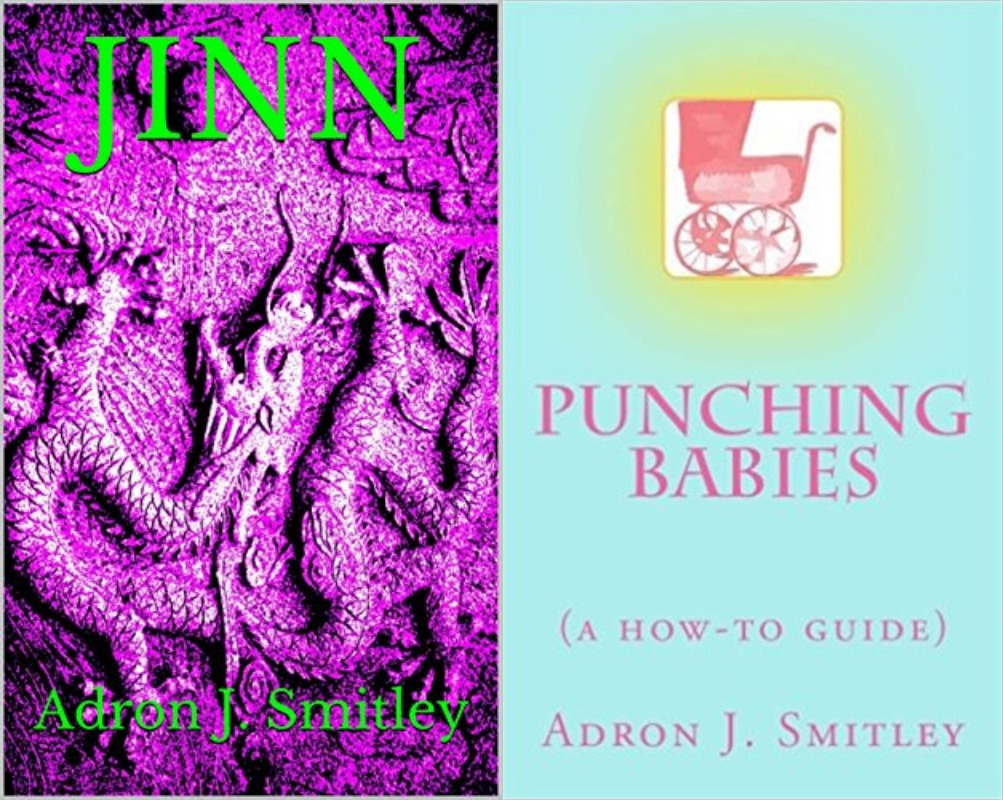
Where can our readers discover more of your work or interact with you?
Easy, my author website: http://www.adronjsmitley.blogspot.com
I post monthly articles for writers there on everything plot, character, and story structure, all of it free.
My book “Punching Babies: a how-to guide” is used by those in the film industry to teach their students on how best to plot their screenplays.
I don’t just love writing, I love helping others write better.
